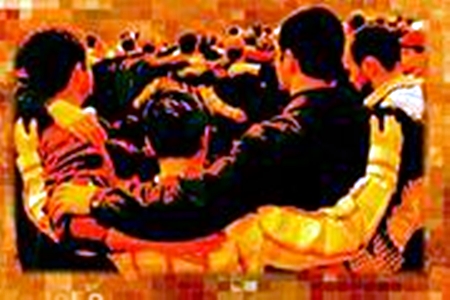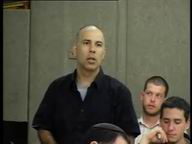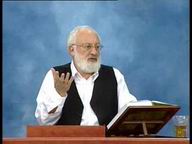
From the Kabbalistic perspective, terrorists are the headache that makes us go to the doctor for treatment. If we don’t go, we will have to go when it’s a migraine.
Fighting terror the right way is an oxymoron: You can’t fight terror, so there is no way of doing it “right.” Why is it impossible? Because terrorism is here for a purpose. Hence, whenever the victims find new ways to defend against it, terrorists will find new ways to terrorize, murder and generally wreak havoc, disorder and fear.
The purpose of terrorism is no different from the purpose of every “evil” element in our world: to force us away from complacency when we are inclined to be idle, and to force us to re-examine our situation. If you look at the world from the Kabbalistic perspective, the whole of humanity is one system, and terrorists are the headache that makes us go to the doctor for treatment. If we don’t go when it’s a mild headache, we will have to go when it’s a migraine.
As is confirmed by science, and has been known to Kabbalists for millennia, the universe is a single, interdependent system, whose well-being depends on constant reciprocity among its elements. These interdependency and reciprocity are sustained by the system’s care for each of its elements, while each element devotes itself to the well-being of the system. Thus, the rule “All for one and one for all” is the mechanism that sustains everything, including life on Earth.
However, humankind is the only species that can choose to act contrary to nature’s law of reciprocity. People can choose to care for others, or for themselves. By choosing to care for ourselves, we place ourselves in total opposition to the modus operandi of the whole of nature, and thus invert the law to “All against one and one against all.” Conversely, by choosing to care for others, we are automatically in sync with the reciprocity law. It is our choice whether or not to act like the whole of nature, but there is really no one to blame but us if our choice to be opposite from nature makes us unhappy.
All this does not mean that terrorists are good-hearted people who are trying to make us see the truth. It means that wanting to work only for ourselves will eventually cause — at least some of us — to justify doing whatever we feel like, as long as it pleases us. From a self-centered perspective, it is perfectly justified to drop an atom bomb on America if I don’t like its president, put a bullet through my neighbor’s chest if his dog poops on my lawn, or murder dozens of innocent college kids because I got up on the wrong foot today. But will this make anyone happy, even the wrongdoer?
To be happy, we need to be synchronized with nature. There are several benefits to that:
1) Nature itself will support us, instead of going against us, as it is doing now.
2) Humankind, like the whole of nature, will work to guarantee the well-being of every person on every level — physical, emotional, and spiritual.
In this spirit, Kabbalist Rav Yehuda Ashlag (Baal HaSulam) wrote in his article “Peace in the World“: “First, everyone must thoroughly understand and explain to his surroundings that the well-being of society, which is the well-being of the state, and the well-being of the world are completely interdependent. As long as the laws of society are not satisfactory to each and every individual in the state, and leave an unsatisfied minority from the government of the state, this minority … will seek to overthrow it.”
Thus, well-being of the individual, well-being of the state and well-being of the world are all interdependent. Only if we all decide to work together to achieve the kind of society that Baal HaSulam describes, will we succeed.
3) If we choose to behave as does the whole of nature, and dedicate ourselves to our fellow person, we will become similar to nature’s law itself. That is, we will be working in the same way as nature — in reciprocity and interdependency, veering away from self-centeredness. This will grant us much more than a comfortable life: Because this modus operandi will stem from our own choice, we will also have the knowledge that begets that mode, the knowledge of the whole of nature, the Creator of the universe. After all, in Gematria (the numerology of Kabbalah), Elokim (God) and “The Nature” are the same.
Click here to read the article at kabbalah.info
Click Here to Sign Up for a Free Kabbalah Introductory Course – Starts Soon!


 Student: If I understood the previous paragraph correctly, does it mean that the higher spiritual level we are in, the more technology will decline?
Student: If I understood the previous paragraph correctly, does it mean that the higher spiritual level we are in, the more technology will decline?

